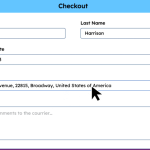GrepWin is a powerful, Windows-based search and replace utility that leverages regular expressions to find patterns across files. Designed with flexibility in mind, GrepWin allows users to manage complex search operations across directories, subfolders, and multiple file types with ease. But a common question among professionals and developers remains: can GrepWin handle the demands of large-scale projects efficiently?
When dealing with expansive codebases, log repositories, or document libraries, search performance and result accuracy become critical. GrepWin, although lightweight in design, offers features that support such intensive requirements. Its reputation as a fast and user-configurable tool raises interest in its capabilities for enterprise-level or team-based tasks.
This article explores GrepWin’s performance on large projects, covering functionality, performance benchmarks, use-case scenarios, and optimization tips. It also outlines what users should consider when applying GrepWin in project environments that involve thousands of files or large data volumes.
Understanding GrepWin’s Core Capabilities
Pattern-Based Search Engine
GrepWin utilizes regular expressions, allowing it to scan for specific patterns in file content. This goes far beyond keyword matching. Users can define rules to extract precise matches, which is vital for handling structured or semi-structured data in complex projects.
File Format Flexibility
GrepWin supports an extensive range of file formats. Whether working with source code, configuration files, markdown documents, or plain text, the tool navigates content without format restrictions. For larger projects with diverse file types, this compatibility plays a key role.
Directory Recursion
One essential requirement in large projects is recursive search across folders and nested structures. GrepWin’s recursive mode allows users to scan entire directory trees. This ensures that no hidden or deeply nested files are skipped during the search.
Performance in High-Volume Environments
Large File Handling Efficiency
GrepWin processes files based on line-by-line reading and in-memory handling of matches. This approach is optimized for speed and can handle individual files that are several megabytes in size. For massive logs or datasets, the tool maintains performance by avoiding unnecessary memory usage.
Search Speed Across Thousands of Files
When pointed at directories containing thousands of files, GrepWin maintains consistent performance, particularly when filters such as file extensions or size limits are applied. Search times may increase slightly with unfiltered queries, but the tool remains stable under load.
System Resource Usage
GrepWin operates as a desktop application, which means it leverages the local system’s RAM and CPU. For large projects, this design ensures responsiveness, provided the system has adequate memory. CPU usage spikes during intensive search operations, but remains manageable due to GrepWin’s multithreaded processing support.
Managing Large Projects with GrepWin
Use in Software Development Projects
Developers working with repositories containing thousands of source files—such as C++, Python, or JavaScript—can benefit from GrepWin’s pattern-matching capabilities. It enables users to search for deprecated functions, variable usage, or code snippets across entire codebases.
Audit and Compliance Scenarios
For teams auditing documents or configurations for sensitive terms or compliance markers, GrepWin proves highly effective. Searching for identifiers, customer records, or regulatory keywords becomes quick and traceable across folders containing numerous reports or configurations.
Documentation and Content Projects
Writers and editors managing large content collections use GrepWin to unify terminology, update formatting tags, or replace outdated references. Its ability to track and replace structured content across documents streamlines consistency and editorial workflows.
Key Features Supporting Large Projects
Inclusion and Exclusion Filters
To manage performance during large searches, GrepWin provides advanced filters. Users can define:
- File extension inclusion lists (e.g., .cpp, .md, .xml)
- Folder name exclusions (e.g., /node_modules/, /temp/)
- File size limitations to avoid unnecessary processing
These filters significantly enhance speed and accuracy, particularly in high-density file environments.
Match Preview and Context View
For each match, GrepWin offers a preview with surrounding lines. This helps users understand the context without opening files. In large projects, this feature reduces manual inspection and speeds up analysis.
Batch Replace Support
Users can perform bulk replacements across multiple files. In large-scale environments, this is useful for variable refactoring, removing deprecated syntax, or updating configuration keys.
Optimization Tips for Large Projects
Apply Targeted File Filters
Avoid scanning all file types by limiting your search scope using file extensions. For instance, searching only .js and .ts files in a JavaScript project drastically improves speed.
Use Case-Sensitive Patterns
If you’re certain about the case of your query, enable case-sensitive search to reduce false positives and minimize processing time.
Limit File Size for Improved Performance
Set maximum file size thresholds to skip binary files or large log archives that do not require scanning. This keeps GrepWin focused on relevant targets.
GrepWin vs. Other Tools for Large Projects
Comparison with Visual Studio Code Search
While VS Code’s search is integrated, it is less flexible with regex and less performant across massive folder structures. GrepWin outperforms it when strict patterns and performance optimization are required.
Comparison with PowerGREP
PowerGREP offers enterprise-level features, including scripting and automation, but comes at a cost. GrepWin is free and lighter, ideal for teams needing a dependable yet accessible solution.
Comparison with Agent Ransack
Agent Ransack is another powerful search tool, but GrepWin’s regex engine and batch replace support make it more suited for technical workflows in development or content projects.
Use Case Examples in Real Environments
Software Codebase Migration
A team working on migrating a codebase from one framework to another uses GrepWin to find deprecated functions and replace them with updated equivalents. With tens of thousands of source files, GrepWin completes the task in record time using targeted regex.
Compliance Report Auditing
In a large enterprise, audit teams search archived documents for terms related to privacy regulations. GrepWin processes hundreds of gigabytes across directories, applying exclusion filters for backups and logs.
Documentation Overhaul
A documentation team updates branding references across thousands of markdown files. GrepWin’s bulk replace and preview feature allows for safe, accurate changes without opening individual files.
Benefits for Enterprise-Scale Use
Scalability Across Departments
Whether used by developers, QA teams, editors, or auditors, GrepWin’s interface supports multiple workflows. Its customization makes it fit seamlessly into cross-departmental toolkits.
Speed with Accuracy
In large projects, the key need is not just speed but accuracy. GrepWin’s pattern engine and match previews ensure results are correct and actionable.
No Learning Curve for Teams
Despite its powerful capabilities, GrepWin remains intuitive. Team members can adopt the tool quickly with minimal training, boosting productivity in large-scale tasks.
Challenges and Limitations
No Real-Time Indexing
GrepWin does not index file contents ahead of time. This means that each search is live and dependent on disk speed. On mechanical drives, this may cause latency.
Memory Usage with Extremely Large Files
Although optimized, huge files—hundreds of megabytes—may cause temporary spikes in memory usage. Users should apply size filters or use line-by-line streaming options.
Limited Automation
GrepWin is GUI-focused and lacks native scripting or CLI automation, which limits its use in automated CI/CD pipelines without workarounds.
How to Use GrepWin for Large Projects
Define Search Directory
Navigate to the root folder of your project. GrepWin will recursively process all subdirectories from this point.
Add File Type Filters
Use the file mask to include only relevant types. For example, enter *.py;*.md for Python and Markdown files.
Craft the Regex Pattern
Insert your pattern in the search field. Test it on smaller directories first to ensure accuracy.
Apply Replace Logic
Enter replacement values if performing batch edits. Use the “dry run” checkbox to test the outcome without writing changes.
Review Match Previews
Inspect previews before applying replacements. This prevents errors, especially in mission-critical systems.
Best Practices for Teams
- Segment Projects: Divide projects into subfolders and process them in stages for better control.
- Log Search Activity: Use GrepWin’s built-in logging to track operations and audit history.
- Train Teams in Regex: A basic understanding of regular expressions enhances accuracy and usability across tasks.
Conclusion
GrepWin proves itself as a reliable, high-performance tool for handling large-scale projects across diverse domains. Its combination of regex-powered search, batch replacement, and filtering tools makes it an excellent fit for development teams, documentation units, and compliance departments. While not designed for automation or scripting out of the box, its strengths in interactive usage, pattern matching, and performance optimization ensure it remains a top-tier utility for anyone working with large volumes of files.







